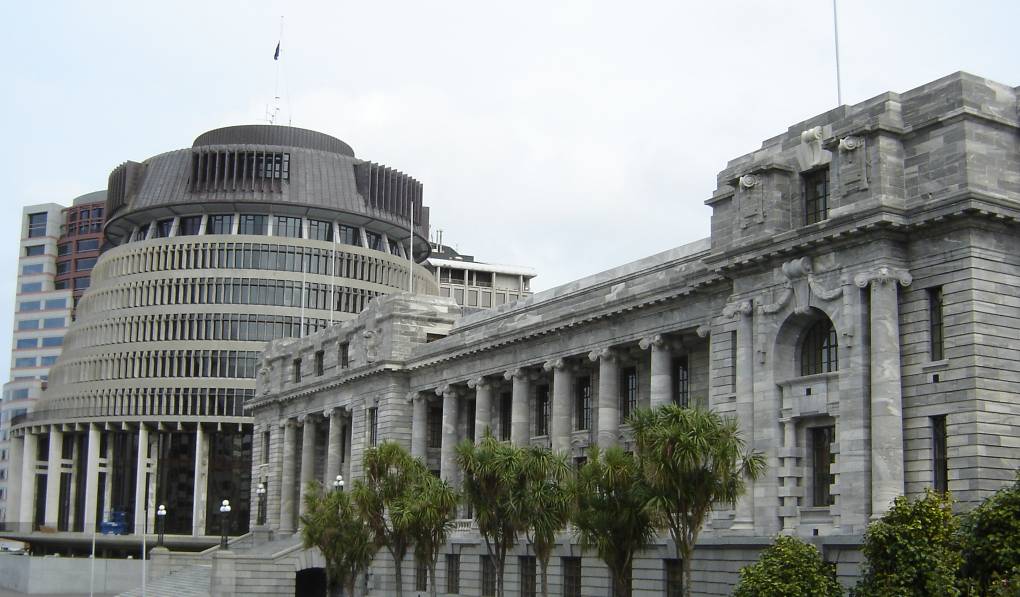When the Government talks about improving our well-being, it seems fair to suggest, agricultural and horticultural scientists are not too high in its considerations.
One measure of this is the content of the Budget speech – the speech announcing the country’s first Well-being Budget – read by Finance Minister Grant Robertson this afternoon.
The word “science” popped up just two times, by our count.
Ag/hort scientists are unlikely to gain much from either mention.
First. Mr Robertson explained that the Government was committed to putting the well-being of current and future generations of New Zealanders “at the heart of everything we do”.
“Budget 2019 shows we are delivering on that commitment.
“In producing this Budget we have drawn on the 61 indicators within the Treasury’s Living Standards Framework dashboard that cover everything from incomes and home ownership rates to subjective wellbeing and our sense of connection to our communities.
“We have looked at international and national evidence, including the views of the Government’s Science Advisors, Ministries and Departments, as well as other inputs such as the Child Wellbeing Strategy.
“No other New Zealand Government has used this level of evidence and statistical analysis as the foundation for a Budget.”
That was the first mention of science.
Let’s check out the second mention:
“Budget 2019 allocates $157 million into innovation, with initiatives to support businesses to become more productive and develop high value low-emissions products. $26 million of this will go towards helping commercialise science and research and turn ideas into products and services.
“This package will support the Government’s target to invest two per cent of New Zealand’s GDP into research and development by 2027.”
Prime Minister Jacinda Ardern’s speech made no mention of science.
Readers therefore have scant cause to pop open a celebratory bottle of bubbly.
Maybe the goodies for ag/hort scientists can be found on Research, Science and Innovation Minister Megan Woods’ Beehive website.
Her name can be found on a joint statement with other Ministers to announce Budget 2019 invests $8.5 million in 2019/20 in the Global Research Alliance (GRA) on Agricultural Greenhouse Gases to reduce and mitigate agricultural emissions.
An investment of $25 million over four years will go into the Agricultural Climate Change Research Platform to support world-class research here in New Zealand to help agriculture deal with the effects of climate change.
Dr Woods says this investment will help address one of our most pressing emissions sources.
“Ultimately, this funding will help us achieve the Government’s goal of net-zero carbon emissions by 2050. It’s crucial that we invest in the research now to achieve long-term change.”
To tackle the long-term challenge of climate change, the Government will also invest in research into cutting edge energy production.
The National New Energy Development Centre will help create new business and jobs in Taranaki while helping New Zealand move towards clean, affordable, renewable energy and away from fossil fuels.
The Wellbeing Budget invests $27 million to set up the centre in Taranaki, alongside a further $20 million over four years to establish a new science research fund for cutting edge energy technology so that we can look into the likes of organic photovoltaics, super conductors, nanotechnologies and inductive power.
Dr Woods says the centre will work closely with industry to test and trial technologies across a range of new energy forms such as offshore wind, hydrogen, solar, batteries, geothermal, and waste-to-energy.
In another joint statement, Dr Woods and her colleagues highlight:
- Bridging the venture capital gap with a $300 million fund
- $157 million into innovation and business
- Boost for Mana in Mahi with places for up to 2,000 young people
- Nearly $200 million for Vocational Training reforms
- Help to ready school leavers for the workplace
This statement says a new $300 million fund will be set up, to help keep more start-ups in New Zealand for longer and support the proportion of New Zealand ownership.
The fund will utilise a portion of contributions ($240 million) earmarked for the New Zealand Superannuation Fund between 2018 and 2022 and $60 million from the New Zealand Venture Investment Fund’s (NZVIF) existing assets.
It will be administered by the Guardians of the Superannuation Fund, and invested by NZVIF through private sector fund managers.
Contributions to the Superfund will continue with an additional $9.6 billion forecast to be contributed over the next five years.
After 15 years all funds (including the principal and returns and the $60 million from the NZVIF) will be returned to the Crown to fund superannuation.
This press statement said transitioning to a high-productivity, low-emissions economy means a change in behaviour, and also an understanding about the sustainable use of resources and the promotion of investment and innovation.
Budget 2019 allocates $157 million over four years into innovation, with initiatives to support businesses to become more productive and develop high value low-emissions products.
This includes $26 million over four years to help support, incubate and grow start-ups.
Dr Woods says start-ups are the way New Zealand will continue to develop unique, world-first and ground-breaking ideas.
“Having sustained support will mean that innovators can more effectively commercialise science and research and turn ideas into products and services that can then be successfully brought to market.”
A great deal of data can be found elsewhere in the plethora of documents that accompany the Budget. AgScience has yet to sift through it.
If we find some nuggets, we will let you know.












